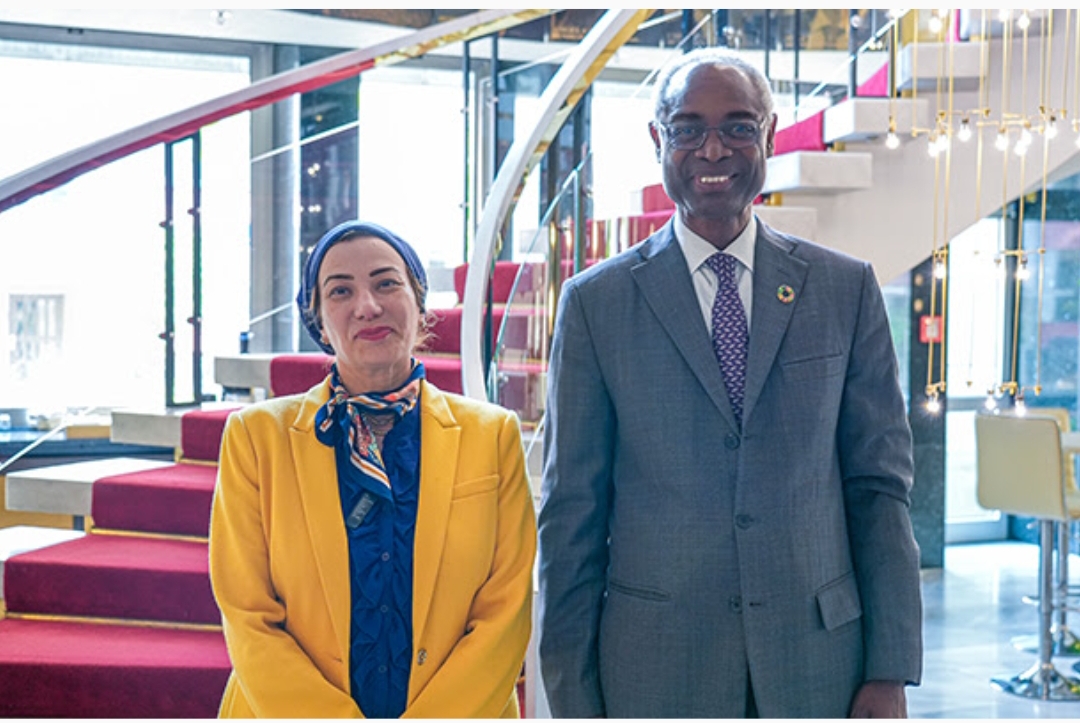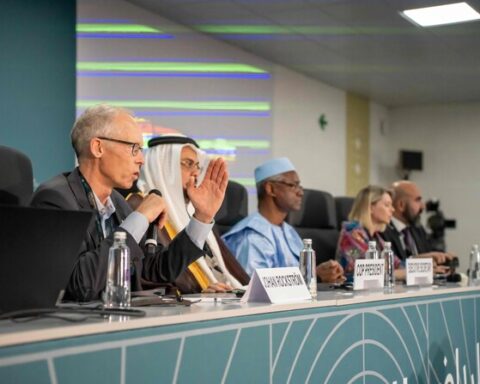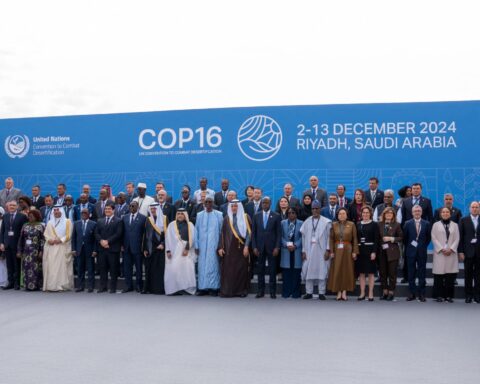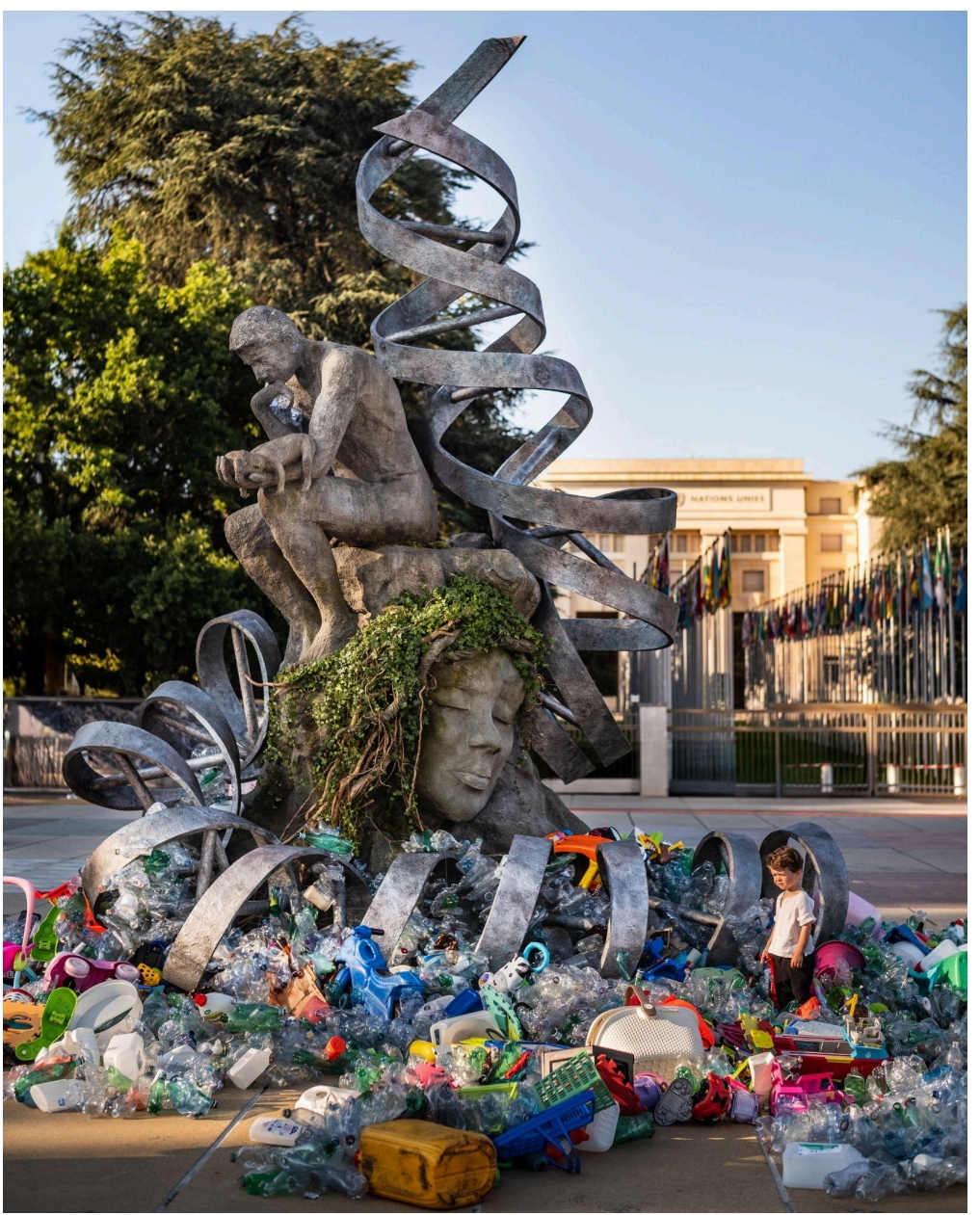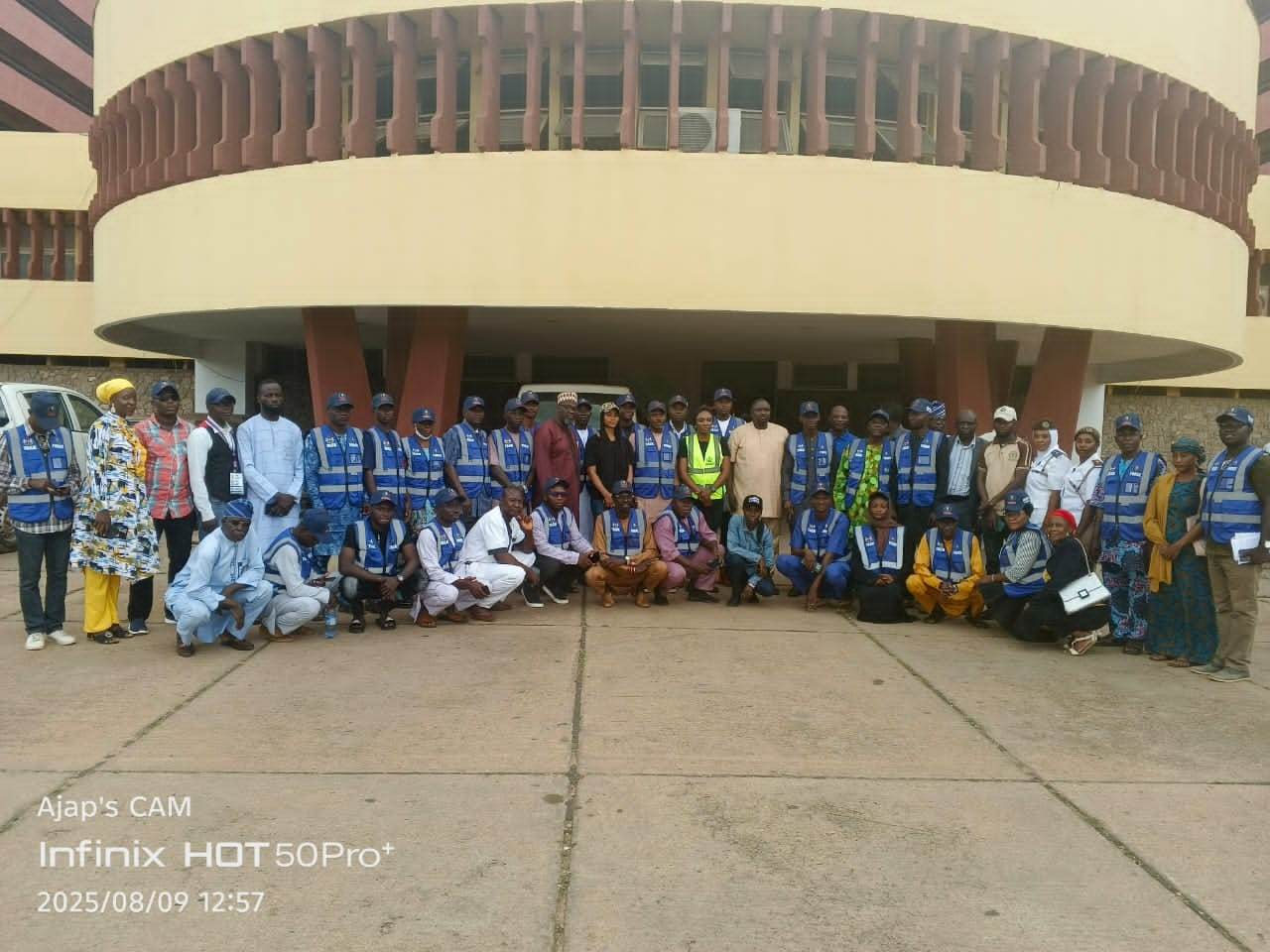The United Nations Convention to Combat Desertification (UNCCD) has officially ushered in a new era of leadership as Mauritanian-born Ibrahim Thiaw handed over the reins of the secretariat to Yasmine Fouad, Egypt’s former Minister of Environment, during a formal ceremony at the UNCCD headquarters in Bonn, Germany.
This historic transition marks a significant moment for African environmental diplomacy, as two distinguished Africans pass the baton in a global institution at the forefront of land restoration and climate resilience efforts.
Ibrahim Thiaw, who served as Executive Secretary since 2019, exits the role after more than four decades of impactful work in environmental protection twelve of those with the United Nations.
Under his leadership, the UNCCD achieved significant milestones, reframing land degradation and desertification from complex environmental problems to powerful pathways for sustainable development.
“I’ve witnessed firsthand how degraded land turns into restored landscapes and revived livelihoods,” said Thiaw. “This transformation inspired every step of my journey… I am proud to have changed the world’s perspective from land as a problem to land as a solution.”
A Pan-African Legacy of Restoration
During Thiaw’s tenure, the UNCCD catalyzed major regional and global land restoration projects, including Africa’s ambitious Great Green Wall, the Middle East Green Initiative, and the G20 Global Land Restoration Initiative.
These programmes have collectively aimed to bring degraded land back to life boosting food production, biodiversity, water access, and community resilience, especially across drought-prone regions like the Sahel, North Africa, and Central Asia.
He also championed the International Drought Resilience Alliance (2022) and the Riyadh Global Drought Resilience Partnership (2024) global mechanisms that now position drought resilience at the core of development and climate security agendas.
Fouad Steps In with Global Credentials
Incoming Executive Secretary Dr. Yasmine Fouad brings over 25 years of experience in international environmental diplomacy.
As Egypt’s Minister of Environment since 2018, Fouad played a key role in convening CBD COP14 and UNFCCC COP27, leading negotiations on climate finance, nature-based solutions, and ecosystem integration.
“I am deeply honored to take up this mantle,” Fouad said. “Building on UNCCD’s 30-year legacy, I will champion integrated solutions across land, climate and biodiversity… and drive bold actions to heal our lands, build resilience to droughts, and secure people’s futures.”
Fouad’s appointment is expected to further cement Africa’s leadership in shaping post-2030 global targets for land restoration and ecosystem protection, especially as vulnerable communities across the continent continue to grapple with land degradation, water scarcity, and food insecurity.
A Human-Centric, Inclusive Approach
Under Thiaw, the UNCCD strengthened its focus on the human face of land degradation, ensuring that local communities, youth, women, and Indigenous Peoples remain central in decision-making.
At UNCCD COP16, bold decisions were adopted to secure meaningful participation of these groups, including a renewed push for women’s land rights and gender-responsive policies.
The outgoing Executive Secretary also advanced science-policy integration, establishing a stronger Science-Policy Interface and working with global experts to ensure evidence-based decisions on land and drought resilience.
O
While public sector momentum has grown, a 2024 UNCCD report revealed that private sector investment in land restoration remains alarmingly low just 6% of total commitments.
To bridge this gap, the UNCCD launched frameworks like the Business4Land Initiative, in partnership with the World Economic Forum, to attract sustainable capital flows into land recovery projects.
Looking Ahead
With Fouad at the helm, expectations are high that the UNCCD will scale up its work deepening partnerships, securing new financing, and translating global commitments into local action across Africa and the Global South.
As the world races toward critical 2030 environmental goals, the new leadership signals continuity and renewed ambition. From the deserts of the Sahel to the drylands of southern Africa, the UNCCD under Yasmine Fouad is set to be a driving force for resilience, dignity, and environmental justice.
By Dare Akogun


